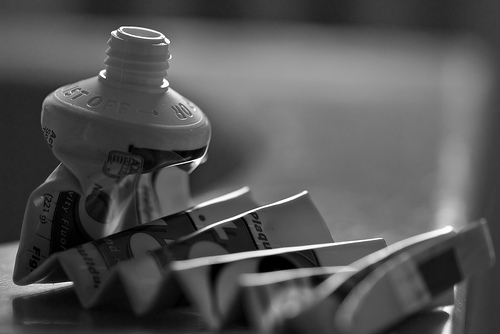
The global recession has finally caught up with us here in South Africa and we are starting to feel the pinch. I’m putting some work into finding ways to cut our expenses, all the while staying green, and in some aspects, becoming even greener.
Here are some ideas I’ve had for cutting back spending that will directly influence our carbon footprint.
Using less electricity
We have beautiful intentions of taking our home in Claremont off-grid as far as electricity is concerned one of these years (i.e. when we can afford to), until then, Eskom is pushing the electricity price to the limit and we are going to have to cut electricity usage to keep our bills under control.
- Don’t use the tumble dryer.
- Remind the husband and children that chargers use electricity even when the device is not attached unless switched off at the wall.
- Close curtains and blinds at dusk to retain heat.
- Put on another layer before switching on the heaters.#
- Replace remainder of incandescent light bulbs with low energy bulbs.
- Switch from using the 30’C cycle on my washing machine to cold wash.
- Switch off the lights when there’s no-one in a room.
- Give all worn clothes a good look-over and sniff before despatching them to the laundry basket.
We already have a few good things going for us as far as energy usage goes.
- We have installed EconoHeat wall heaters in all bedrooms.
- We run low energy use oil heater on wheels for the rest of the house and the occasional fire in the fireplace.
- Our roof is very well insulated.
- The majority of our light bulbs are of the energy saving variety.
Growing food and not wasting any
Since I stopped working outside the home and am a full-time errant housewife and mother, I have more time to cook, garden and plan. For us this is a big plus while we’re looking at our income dropping.
- Get our home food garden in full swing. We’ve bought a whole bunch of fruit trees (apple, pear, plum, mango, naartjie (Clementine) and pomegranate) and I’ve sown spinach, chard, lettuce, carrots, onions and peas for winter growing. I will be putting some extra hours into the garden to boost food production and avoid shopping trips.
- Complete cut out convenience foods and cook from scratch, cooking up double batches and freezing half for easy ready-meals later.
- Eat meat only once a week.
- Make a packed lunch for Pete and the kids the evening before.
- Always take reusable bags to the shops to avoid paying for plastic bags that are bad for the environment.
- Make my own household cleaners out of bicarb. of soda and vinegar.
- Buy in bulk. I’m going to chat to a few friends and family about bulk buying and sharing non-perishables once I’ve been to Makro to check out what’s available and compare prices. Buying in bulk is better for the planet because there’s less packaging and fewer trips to the shops in a car.
Being clever while getting about
When we chose our family car, we decided to buy a car with both 2×4 and 4×4, and it’s a diesel too, making it quite economical on fuel. We only need to use the 4×4 when we’re visiting our holiday place in the mountains, or when we’re away on holiday having adventures.
- Cut back on trips out to save fuel. Plan shopping trips with collecting children from school and dropping the recycling off at the same time.
- Use my bicycle more for local trips, or walk.
And a few more ideas that don’t fit into the above categories:
- Sell our clutter. We moved into our new house a couple of months ago and have a store room full of stuff that we aren’t using. Some of this stuff will be despatched via Gumtree or the like.
- Buy secondhand clothes rather than new. This is something that I often did in England, but haven’t been doing here in SA. But I just came across this great resource for vintage and secondhand clothing shops in Cape Town, and I’m going to give it another bash.
- Use the library instead of buying books.
Photo credit: Birdieann